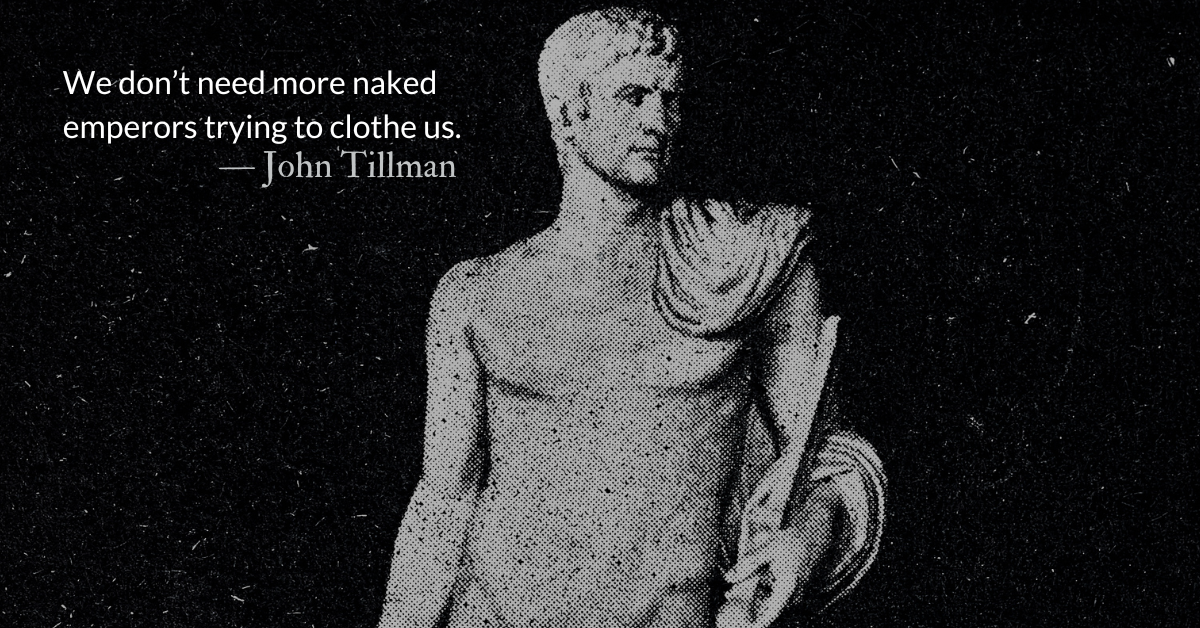Scripture Focus: Isaiah 20.1-6
1 In the year that the supreme commander, sent by Sargon king of Assyria, came to Ashdod and attacked and captured it—2 at that time the Lord spoke through Isaiah son of Amoz. He said to him, “Take off the sackcloth from your body and the sandals from your feet.” And he did so, going around stripped and barefoot.
3 Then the Lord said, “Just as my servant Isaiah has gone stripped and barefoot for three years, as a sign and portent against Egypt and Cush, 4 so the king of Assyria will lead away stripped and barefoot the Egyptian captives and Cushite exiles, young and old, with buttocks bared—to Egypt’s shame. 5 Those who trusted in Cush and boasted in Egypt will be dismayed and put to shame. 6 In that day the people who live on this coast will say, ‘See what has happened to those we relied on, those we fled to for help and deliverance from the king of Assyria! How then can we escape?’ ”
Image Note: Image is from a 19th century photograph of a statue of Emperor Caligula.
Reflection: The Empire Has No Clothes
By John Tillman
What is Isaiah up to, going naked for three years?
Isaiah isn’t some kooky outsider among the prophets. He is the most intellectually, politically, and relationally elite prophet in Israel or Judah’s history. His writing, had he been British, would be equated with Milton or Shakespeare. Had he been Spanish, Miguel de Cervantes. Had he been American, Ralph Waldo Emerson or Maya Angelou. He was a literary giant.
Isaiah was also accustomed to the company of kings and the halls of power. This isn’t some stunt by an influencer trying to get attention. Isaiah isn’t an edgy comedian or an out-of-town hippie. He’s not a reality television show contestant striving for ratings. To us, this would be like a stodgy, erudite, professor/pastor/poet/statesman suddenly pulling off his bowtie and cardigan…and everything else.
Isaiah’s nakedness mimicked the way captives from Cush and Egypt would be treated by Assyria. They would not only be marched into exile, but would do so naked, with bare buttocks and bare feet. The bare feet would be physically punishing. The bare buttocks would be emotionally punishing.
Why would Isaiah portray Egypt’s suffering so graphically?
Judah was seeking protection from powerful political allies. Rather than rely on God, they leaned on Egypt. Like the little boy in Hans Christian Andersen’s tale, Isaiah confronted people with the truth, “The empire has no clothes!” Isaiah’s constant nakedness would not let Judah escape the image of shamed and conquered Egypt. The sight of their political allies being publically humiliated struck fear in their hearts. “See what has happened to those we relied on…how can we escape?”
It is not uncommon for groups, including the church, to lean on “strongmen” who promise protection. Political strongmen can be individuals, small local groups, or national political machines. They say: “Only I can defend you.” “Without me, you’ll lose everything.” “Look what I can do for you.”
We would do well to recognize that these are the same promises made to Christ in the wilderness. “All this I will give you if you bow down.” Every time God’s people or his church have bargained with power for protection, it has ended in shame.
We don’t need more naked emperors trying to clothe us. If anything, we might need to be willing to be stripped and shamed, to remind others that the emperors they trust have no clothes.
Divine Hours Prayer: The Morning Psalm
Lord, how great are your works! Your thoughts are very deep.
The dullard does not know, nor does the fool understand, that though the wicked grow like weeds, and all the workers of iniquity flourish, they flourish only to be destroyed forever; but you, O Lord, are exalted forevermore. — Psalm 92.5-7
Today’s Readings
Isaiah 19-20 (Listen -4:49)
Luke 2 (Listen -6:11)
Read more about Naked Humility, Unexpected Salvation
May we practice naked humility, humbling ourselves before we are humbled and stripping away pride before it is stripped away.
Read more about No Princes
The princes of this land cannot save us, nor do they intend to.
Their fine bracelets are shackles.







